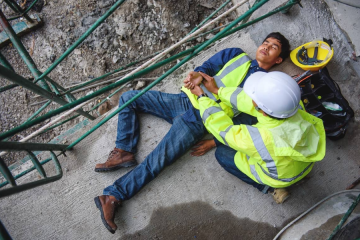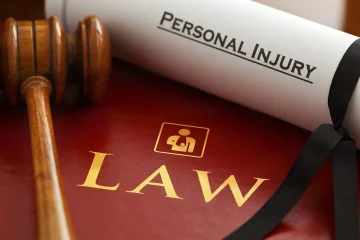In a world where child sexual abuse is an unfortunate reality, creating a safe environment for children has become more important than ever.
Homes, communities, and places of worship should be sanctuaries where children feel secure and protected.
As caregivers and community members, it’s our responsibility to implement preventative measures to protect our children from harm.
Here are some essential tips for preventing child sexual abuse in various settings.
How to Prevent Sexual Abuse of Children
Open Communication
Establishing open communication with children is crucial. Encourage them to express their feelings and concerns freely. Teach them the proper names for body parts and educate them about personal boundaries.
Let them know that they can come to you with any worries or uncomfortable experiences without fear of judgment.
Educate Children
Teach children about safe and unsafe touches from an early age. Help them understand that their bodies belong to them and no one should touch them inappropriately.
Use age-appropriate language and scenarios to convey these messages effectively.
Set Boundaries
Establish clear boundaries within the family and community settings. Teach children to recognize and assert their boundaries. Respect their boundaries consistently to reinforce their importance.
Screen Caregivers and Volunteers
Whether it’s hiring a babysitter, enrolling children in extracurricular activities, or volunteering at a church, ensure that individuals who interact with children undergo thorough background checks. Look for red flags and trust your instincts if something feels off.
Supervise Interactions
Always supervise interactions between children and adults, especially when in unfamiliar environments or around unfamiliar individuals. Avoid leaving children alone with adults whom you don’t know well or trust implicitly.
Teach Consent
Teach children about the concept of consent in age-appropriate ways. Explain that they have the right to say “no” to any form of physical contact that makes them uncomfortable, even if it’s from someone they know.
Encourage Healthy Relationships
Foster an environment where healthy relationships are valued and modeled. Teach children about mutual respect, empathy, and kindness. Help them understand the difference between healthy and unhealthy relationships.
Recognize Warning Signs
Educate yourself and other caregivers about the warning signs of child sexual abuse. These signs may include sudden changes in behavior, reluctance to be alone with certain individuals, nightmares, unexplained injuries, or sudden aversion to specific places or activities.
Create Safe Spaces
Ensure that physical environments where children spend time are safe and secure. This includes homes, schools, playgrounds, and places of worship. Address any potential hazards and implement safety measures such as childproof locks and security cameras where appropriate.
Empower Children
Empower children with the knowledge and skills to protect themselves. Teach them to trust their instincts and assert themselves if they feel uncomfortable or threatened. Role-play different scenarios to help them practice assertive communication.
Promote Reporting
Encourage children to report any incidents of abuse or inappropriate behavior to a trusted adult. Assure them that they will be believed and supported. Create a culture where speaking up against abuse is encouraged and valued.
Support Survivors
If a child discloses abuse, respond with empathy, compassion, and support. Believe their story without judgment and take immediate steps to ensure their safety. Report the abuse to the appropriate authorities and seek professional help for the child and family.
Educate Adults
Provide training and education to adults in the community, including parents, teachers, childcare providers, and religious leaders, on preventing child sexual abuse. Equip them with the knowledge and skills to recognize, respond to, and report abuse effectively.
Hold Perpetrators Accountable
Advocate for policies and laws that hold perpetrators of child sexual abuse accountable for their actions. Support survivors in seeking justice and holding abusers accountable for their crimes.
Recent events like the Michigan Clergy Abuse highlight the urgency of addressing systemic issues within institutions that put children at risk.
This serves as a reminder of the importance of implementing robust safeguarding measures and holding perpetrators accountable, regardless of their position or affiliation.
Michigan clergy abuse attorneys can provide survivors with legal representation and assistance in pursuing civil lawsuits against perpetrators and institutions responsible for clergy sexual abuse.
These attorneys specialize in handling cases related to clergy abuse and can offer survivors compassionate and knowledgeable legal support throughout the litigation process.
Legal Options That Clergy Sexual Abuse Survivors Can Pursue
Survivors of clergy sexual abuse have legal options available to seek justice and accountability for the harm they have endured. These options include:
Criminal Charges
Survivors can report the abuse to law enforcement authorities, leading to criminal investigations and potential charges against the perpetrator. Criminal prosecution can result in the perpetrator being held accountable through imprisonment or other penalties.
Civil Lawsuits
Survivors can file civil lawsuits against the perpetrator and/or the institution responsible for allowing the abuse to occur.
These lawsuits seek financial compensation for damages such as medical expenses, therapy costs, lost wages, and pain and suffering. Civil litigation can also hold institutions accountable for their failure to protect children from abuse.
Victim Compensation Programs
Some states have victim compensation programs that provide financial assistance to survivors of crime, including clergy sexual abuse. These programs may cover expenses related to medical treatment, therapy, and other services for survivors.
Statute of Limitations Reform
Survivors and advocates can work to reform the statute of limitations laws to extend the period during which survivors can pursue legal action against their abusers.
Reforms may also include opening a window for survivors to file lawsuits regardless of how much time has passed since the abuse occurred.
Advocacy and Support Groups
Survivors can seek support from advocacy organizations and support groups that specialize in clergy sexual abuse. These groups can provide emotional support, resources, and guidance on navigating the legal system.
Conclusion
By pursuing these legal options, survivors of clergy sexual abuse can hold perpetrators and institutions accountable for their actions, seek justice, and contribute to preventing future abuse.
Survivors need to know that they are not alone and that there are avenues available to seek redress and healing.
Preventing child sexual abuse requires a collective effort from individuals, families, communities, and institutions.
By implementing these tips and fostering a culture of safety and accountability, we can create environments where children can thrive free from the threat of harm.
Together, let’s prioritize the well-being and protection of our children, ensuring that they grow up in environments where they feel safe, valued, and respected.



